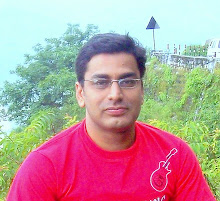Short on strategy
Thursday, October 2, 2008
THE confusion within the Manmohan Singh-led United Progressive Alliance (UPA) government about evolving a cogent strategy to tackle terrorist attacks manifested itself in a telling manner on September 16, three days after yet another series of bomb blasts rocked Delhi, killing 30 people and leaving over a hundred injured. On this day, different sections of the government were talking in different voices both about the factors that allowed terrorists to attack the capital city for the third time in a span of three years and about the policy and the strategy to be followed in the future.
Leading the babel of voices was Shivraj Patil, who claimed in a television interview that since he had not been espied as sleeping at a public function, and since he did not drink or gamble or was not caught going to dance clubs, he was doing a reasonably satisfactory job as the Union Home Minister. His comments were, in many ways, a response to fellow-Cabinet Minister and Rashtriya Janata Dal leader Lalu Prasad, who had roundly criticised the Home Ministry for failing in the area of internal security.
Lalu Prasad said that the Home Ministry should gather accurate intelligence to ward off terrorist attacks instead of lamenting after the deed was done and lives were lost. He also demanded an emergency Cabinet meeting to be followed by an all-party meeting to discuss issues arising out of the Delhi blasts.
Indications from within the UPA were that several smaller parties and sections of the Congress shared Lalu Prasad’s criticism of the Home Ministry. Former Madhya Pradesh Chief Minister Digvijay Singh of the Congress, however, came to Shivraj Patil’s support by asserting that the Home Minister was a responsible leader and that he knew the gravity of the situation and the implications of repeated terrorist attacks.
The differences were not confined to the analysis of past events. There were different viewpoints within the UPA on future plans and operations too. The Administrative Reforms Commission (ARC), headed by Congress leader M. Veerappa Moily, chose September 16 to release its eighth report, titled “Combating Terrorism”, and many
 Police exzmine damaged vehicles at the site of one of the bomb blasts in New Delhi on September 13.
Police exzmine damaged vehicles at the site of one of the bomb blasts in New Delhi on September 13.
of its recommendations were clearly at variance with the official position of the Congress. The single most important recommendation made by the ARC was that “a comprehensive and effective legal framework to deal with all aspects of terrorism needs to be enacted”.
This suggestion virtually challenged the position held by the Congress vis-a-vis the basic legal framework for confronting terrorism. The party has been consistently maintaining that there is no need to alter the legal framework of anti-terror laws and that extremism can be contained using existing laws. In fact, the Congress and its allies in the UPA have been at loggerheads with the Bharatiya Janata Party (BJP)-led principal opposition for a long time on this issue.
One of the first actions of the UPA government was to withdraw the Prevention of Terrorism Act (POTA), which had been brought in by the BJP-led National Democratic Alliance (NDA) government. The BJP’s argument was that stringent laws such as POTA should be reintroduced to take on terrorism. The Congress vociferously questioned this standpoint.
Many of the specific recommendations in the ARC sought to alter the Congress, and UPA, view. These included recommendations favouring longer periods of preventive detention (even up to one year), stringent bail provisions, altering the normal criminal procedure practice in terms of confessions made before the police, and treating these confessions as admissible evidence

Shivraj Patil, Union Home Minister. At one point, there was a groundswell of opinion favouring his removal from office.
Even as all these political and strategic questions were being debated within the UPA’s political and governance committees, the investigation into the Delhi blasts was proceeding much in the same manner as those into the earlier attacks. On September 16, the investigating agencies released a number of pictures of suspected perpetrators of the attack. There were also many “revelations” about how the operatives of the Indian Mujahideen and other terrorist outfits had planned the September 13 attack and how they had gone about it. Still, no breakthrough was in sight.
According to sources in the Home Ministry, as many as six cases relating to terrorist attacks in the past three years remain unsolved. These include the 2005 Deepawali-eve serial blasts in Delhi and the 2006 serial train blasts in Mumbai.
In a sense, one of the reasons for the repeated failure of the security and political system was highlighted by Communist Party of India (Marxist) Polit Bureau member Brinda Karat when she took a delegation of victims’ relatives to Shivraj Patil two days after the blasts. These poor people, who lived close to Ghaffar Market in Karol Bagh, had lost as many as 11 of their kith and kin. They had virtually to bribe their way through hospitals and other official machinery to carry out the post-mortem of the bodies and get them released for cremation.



0 comments:
Post a Comment